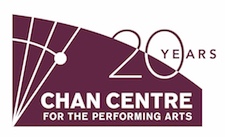Chan Shun Concert Hall at the Chan Centre for the Performing Arts | Map
Pacific Baroque Orchestra; Alexander Weimann, music director; Vancouver Cantata Singers; Paula Kremer, VCS artistic director; Thomas Hobbs, evangelist; Jenny Högström, soprano; Aleksandra Lewandowska, soprano; Alex Potter, counter-tenor; Robert Getchell, tenor; Stephan MacLeod, bass-baritone; Sumner Thompson, baritone
The St. John Passion by J.S. Bach is absolutely riveting and is the closest the great composer ever came to writing an opera. Written using text mostly from Martin Luther’s German translation of the Bible, as well as poetry by Barthold Heinrich Brockes (1680-1747), it moves at break neck speed and is filled with an urgency, musical variety and intensity of affect that is unmatched in the history of sacred music. Join the Pacific Baroque Orchestra, the Vancouver Cantata Singers and a cast of international Bach specialists for this dramatic reading of one of the greatest works in the classical repertoire.
Click here for an article by Michael Marissen entitled Bach’s St. John Passion and the Jews.
Supported by the Drance Family
Programme Notes
It is always astonishing to realize how little known Johann Sebastian Bach was in his day, and to learn the circumstance surrounding his accession to the post of cantor of the Saint-Thomas church in Leipzig. When the post became available after the death of Kuhnau in June 1722, it took almost a year of negotiations, and refusals by both Telemann and Graupner, before the city council settled on Bach who, until then, had been in the service of the Prince Anhalt-Cöthen. So it was that on May 13, 1723, after having settled his family in the house the city provided, that Bach took up the post. He was happy to leave Cöthen for a number of reasons. First, Prince Leopold had lost interest in music. Second, Bach wished to give his sons the university training he himself never received, and Leipzig housed within its walls one of the most celebrated universities in Germany. Finally, because Bach had composed a good deal of instrumental music for the Calvinist Cöthen court, he was doubtless stimulated by the prospect of once again writing music for the church. He had been happy in Cöthen but he was unhappy in Leipzig, where for some 30 years he was harassed by the pettiness of the ‘Most Noble and Most Wise’ city council. Bach now began a period of intense creativity, producing an impressive number of cantatas during his first years as cantor. But of the five Passions attributed to his pen, all that has come down to us, apart from some sections reused in various cantatas, are the Saint John Passion, and the Saint Matthew Passion, the latter composed at the end of the 1720s. (Stéphan Vincent- Lancrin believes that we should translate the original German titles, Johannes Passion and Matthäus Passion as Passion According to John and Passion According to Matthew because “Protestants don’t have saints.”)
We do not know whether Bach wrote the first of these two works when he first took up his new post; some believe that it could have been performed in April 1723, as a kind of entrance exam, while others believe it was first heard on April 7, 1724 — or maybe that this was the work Bach performed, in whole or in part, during his visit to Gotha in 1717. Whatever the case, Bach presented the work, with modifications, a further three times: in 1725, in 1728 or 1732, and at the end of the 1740s. Despite this imprecision, we know that in Leipzig the text of the Passion was set to music to be sung during Vespers on Good Friday, in two parts, before and after the sermon, and that this, Bach’s first Passion, was performed in the Saint Nicholas church, which alternated with the Saint Thomas church as the venue for an annual musical representation of the Passion.
The monumental and anguished opening chorus in G minor sets the mood of the drama right away. Though its text invites the believer to pray and to glorify the omnipotent and eternal Lord, the music gives off palpable tension: while the oboes, doubled by the flutes, slowly descend in pungently abrasive seconds, the string figurations evoke the endless suffering of Christ. Then, before returning to the material already presented by the instruments, the chorus enters with exclamations that sound more like pathetic cries than confident affirmations.
This Passion follows the generic rules of oratorio. The story, which is drawn from chapters XVIII and XIX of the Gospel according to John, supplemented by some verses from Matthew, is presented in essence as a commentary with personifications of the protagonists. Following tradition, this narration is assigned to a tenor voice. Other voices personify various key persons, while the choir sings the role of the crowd, of groups of soldiers, and of groups of priests. The role of Christ, sung by a bass, as usual, is “calm and sublimely majestic,” while the treatment of the choruses reveals a crowd that is, in the words of Karl Geiringer, “fervent, impassioned, and aroused.” To render the rapidity of narrative that characterizes this gospel, Bach provides various kinds of contrast, and particularly a rapid alternation between sharp and flat keys.
This scheme is interrupted by commentaries in free poetry, the texts of which Bach may have written himself, drawing inspiration from the writings of pastors Barthold Heinrich Brockes and Christian Heinrich Postel. Arias and ariosos, like the chorales chosen by the composer, serve as resting points as the story unfurls, moments to meditate upon the meaning and implications for the Christian of the sufferings of Jesus. The goal is not only to relate the sequence of events leading to salvation, but also to explain them to the faithful by means at times theatrical, moving, or meditative.
The various sections are not randomly arranged. Rather, as is true of so many elements in the Cantor’s music, they are ordered following rules that are precise though not immediately perceptible to the listener. For an idea of the composer’s organizing thought at work, consider this: all the music between the chorales Ach großer König (nº 17) and In meines Herzens (nº 26), is organized as a vast palindrome extending symmetrically on both sides of the chorale Durch dein Gefängnis (nº 22). The text of this chorale develops the paradoxical idea that it was by his captivity that Christ assured our freedom. By placing it at the centre of his organizational scheme, Bach highlights the centrality of the message of the Redemption.
This structure is not only elaborate — an essential characteristic of the Baroque that Bach developed more than anyone else — but alive, fully inhabited; nothing in it is left to chance and, by a variety of compositional techniques, all emotional responses to the profound subject being treated are plumbed. Note the care with which Bach musically emphasizes the sense of certain key words. For instance, on the words weinete bitterlich (bitterly weeping), recitative no. 12 become an arioso full of chromaticisms evoking Peter’s tears; or, in the unusually long aria Erwäge, wie sein blutgefärbter Rücken (no 20), delicate figurations on two violas d’amore represent the rainbow. With its rapid central part, in which the voice is accompanied by the string ensemble, Es ist vollbracht (no 30), the expressive peak of the work, inverts what was, in Bach’s day, the usual da capo structure of an aria (that is, with a slow central section sandwiched between the first section and its reprise). Grief at the death of Jesus is here doubled by the affirmation, from the left, that it constitutes the ultimate triumph. Bach reaches an incomparable profundity of expressiveness not by rote association of musical motif with image (such literal music is dull), but by the beauty of his melodies, the feeling associated with various keys, and the richness of his harmonies.
His expressive intention is also seen in his choice of instruments. We speak here not of orchestration, but rather of the colors painted by instruments chosen following the theory of affects: that is, according to the conventions of the day by which particular instruments symbolized particular emotions. The use of period instruments today convinces us that these matchings and the composer’s choices are sound. Thus, according to Mattheson, the viola da gamba evokes tenderness and serious matters and is the ideal choice to give an impression of nocturnal mystery in Es ist vollbracht. The violas d’amore, again according to Mattheson, convey languishing tenderness, such as the dolorous joy evoked in the aria Betrachte,mein Seel (nº 31). Flutes are often used as funerary instruments, evoking the departure of the soul, the unknown, mercy, and serene joy. Oboes, when they are not being loud or vehement, as they are when they accompany the crowd scenes, are uneasy and moving. According to André Pirro, the oboe da caccia makes audible “rumors of grief and of the night with the pungent stubbornness of a tolling bell.” Listen, for example, to the arioso Mein Herz […] Was willt du deines Ortes tun? (no 34). Finally, the oboe d’amore evokes abandon and the “grief of compassionate friendship”, while the lute adds its gentle sound to the ethereal voices of the viola d’amore, as if not to rush them.
This Saint John Passion ends with a funerary chorale on a lullaby rhythm, written for the same forces as those used for the opening chorus — its descending motives illustrate the lowering of the body into the grave— and a simple and touching chorale. Compared to the Saint Matthew Passion, this is a more intimate, less grandiose, less orchestral, and possibly also more subjective work. As Geiringer puts it, Bach’s musical setting of the gospel according to Christ’s favorite disciple shows “the celestial power in opposition to earthly suffering.” It is a dramatic work combining great rigor and emotion.
©FRANÇOIS FILIATRAULT, 2010.
TRANSLATED BY SEAN MCCUTCHEON
Texts and Translations
Click here to view or download the texts and translations for this concert
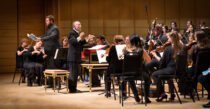
Pacific Baroque Orchestra
The ‘house band’ of Early Music Vancouver, The Pacific Baroque Orchestra (PBO) is recognized as one of Canada’s most exciting and innovative ensembles performing “early music for modern ears.” Formed in 1990, the orchestra quickly established itself as a force in Vancouver’s burgeoning music scene with the ongoing support of Early Music Vancouver. In 2009, PBO welcomed Alexander Weimann as Director. His imaginative programming, creativity and engaging musicianship have carved out a unique and vital place in the cultural landscape of Vancouver.
PBO regularly joins forces with internationally-celebrated Canadian guest artists, providing performance opportunities for Canadian musicians while exposing West Coast audiences to a spectacular variety of talent. The Orchestra has also toured throughout BC, the northern United States, and across Canada. Their 2019 East Coast Canadian tour with Canadian soprano Karina Gauvin culminated in a critically acclaimed album, Nuit Blanches, released by Atma Classique.
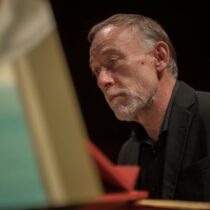
Alexander Weimann, music director
Alexander Weimann is one of the most sought-after ensemble directors, soloists, and chamber music partners of his generation. After travelling the world with ensembles such as Tragicomedia, Cantus Cölln, the Freiburger Barockorchester, Gesualdo Consort and Tafelmusik, he now focuses on his activities as Music Director of the Pacific Baroque Orchestra in Vancouver, Music Director of the Seattle Baroque Orchestra, and regular guest conductor of ensembles including the Victoria Symphony, Symphony Nova Scotia, Arion Baroque Orchestra in Montreal and the Portland Baroque Orchestra.
Alex was born in Munich, where he studied the organ, church music, musicology (with a summa con laude thesis on Bach’s secco recitatives), theatre, mediæval Latin, and jazz piano, supported by a variety of federal scholarships. From 1990 to 1995, he taught music theory, improvisation, and Jazz at the Munich Musikhochschule. Since 1998, he has been giving master classes in harpsichord and historical performance practice at institutions such as Lunds University in Malmö, the Bremen Musikhochschule, the University of California (Berkeley), Dartmouth College (New Hampshire), McGill University, Université de Montréal, and Mount Allison (New Brunswick). He now teaches at the University of British Columbia and directs the Baroque Orchestra Mentorship Programme there. He has received several JUNO and GRAMMY Award nominations – most recently, for the album Nuit Blanches with the Pacific Baroque Orchestra and Karina Gauvin.
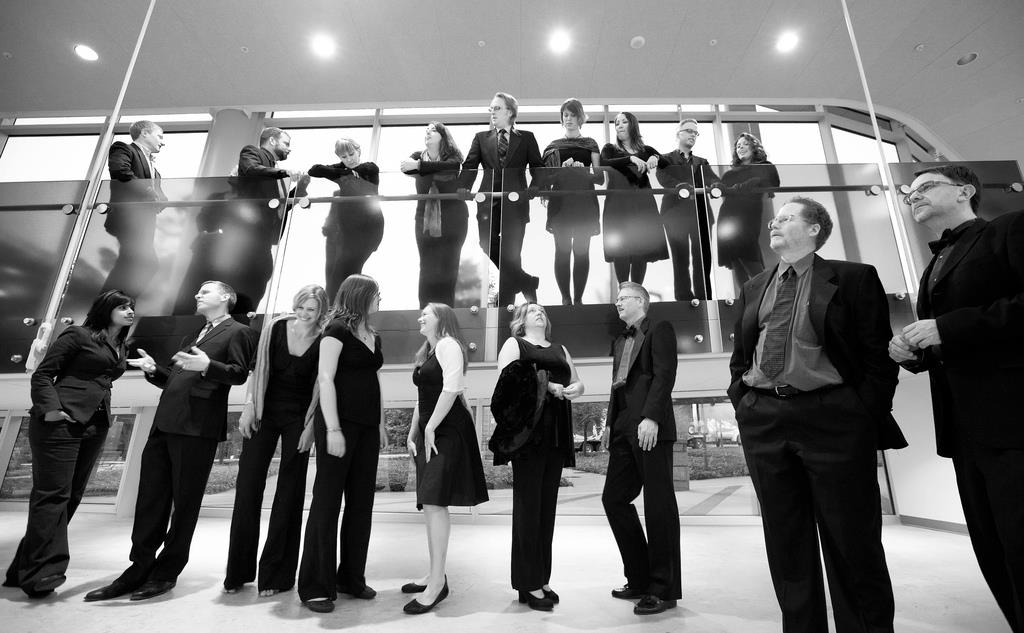
Vancouver Cantata Singers
The Vancouver Cantata Singers is one of Canada’s preeminent, award-winning choral ensembles. Known for its exceptional artistry, technical virtuosity and exquisite tonal blend, the choir maintains the highest standards of performance in repertoire encompassing 500 years.
On Canada Day, 2019, the Vancouver Cantata Singers was awarded the prestigious Canada Council for the Arts Healey Willan Prize, for the fourth time – more than any other ensemble in the history of the award. The VCS was also awarded Best Performance of a Canadian Work and First Place in the Adult Mixed-Voice Category at the National Competition for Canadian Amateur Choirs.
A mainstay on the Canadian music scene for over 60 years, the VCS has maintained the highest levels of artistry in choral singing while continuing to reinvent and redefine itself creating innovative and extremely successful collaborations with acclaimed regional as well as international artists and ensembles.
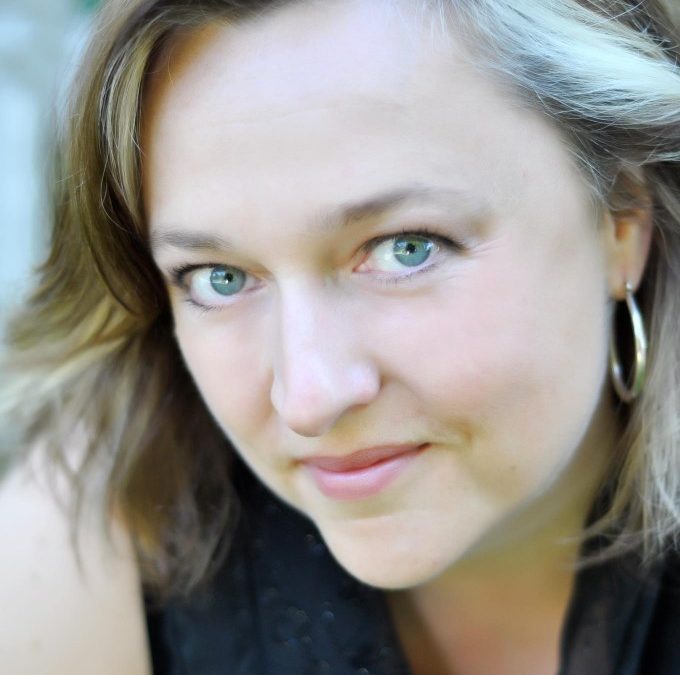
Paula Kremer, VCS artistic director
Born in Vancouver and educated at the University of British Columbia and the Vancouver Academy of Music, Paula Kremer has studied choral conducting at Eton College, Westminster Choir College, the Eastman School of Music and the University of Michigan. An accomplished vocalist and pianist, Paula studied voice with Phyllis Mailing, Bruce Pullan, Marisa Gaetanne and Laura Pudwell and piano with Margot Ehling. As permanent faculty member of the School of Music at Vancouver Community College, Paula teaches choral techniques, voice and solfege. She was previously the Director of Vancouver Bach Choir ensembles for young adults, the Vancouver Bach Youth Choir and Sarabande Chamber Choir. Paula joined the alto section of our choir in 1994 and has been the Artistic Director of the Vancouver Cantata Singers since 2013.
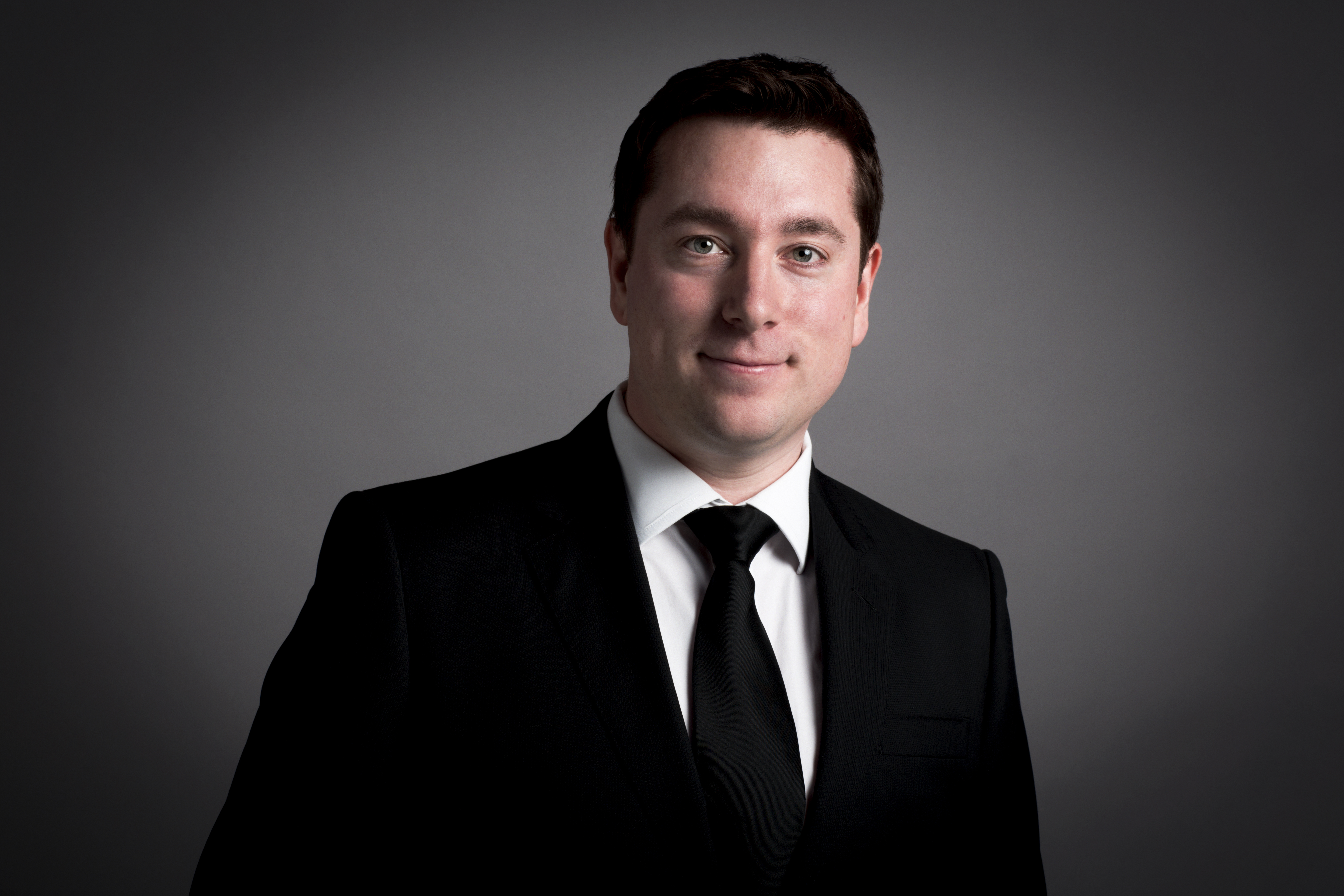
Thomas Hobbs, evangelist
Thomas Hobbs is in demand with many leading baroque and early music ensembles, appearing throughout Europe and the US as a soloist in key works from the 16th, 17th and 18th centuries.
Current and future engagements include Haydn’s Creation with Israel Camerata in Jerusalem and with the London Philharmonic Orchestra, tours with Collegium Vocale Gent, and Bach cantatas, Mass in B Minor, and Easter Oratorio with the Nederlandse Bachvereniging. Hobbs will also sing Bach with the Musikpodium Stuttgart, and Monteverdi Vespers with the Academy of Ancient Music.
Recent concert performances include Damon in Acis and Galatea with Dunedin Consort, Bach cantatas with the Nederlandse Bachverenigning and Ensemble Pygmalion, Bach’s Christmas Oratorio with the Tonkünstler-Orchester Niederösterreich, Tonhalle Orchester Zürich and Le Concert Lorrain. Hobbs has also sung Evangelist in the Bach St Matthew Passion and St John Passion with the Choir of King’s College, Cambridge.
Hobbs’s operatic roles include a critically acclaimed Telemachus in The Return of Ulysses in a new production for English National Opera conducted by Jonathan Cohen, Apollo and Shepherd in Monteverdi’s Orfeo in semi-staged performances with Richard Egarr and the Academy of Ancient Music, the title role in Albert Herring and Ferrando in Così fan tutte. Also a keen recitalist, Hobbs’ recent highlights include performing Brett Dean’s Winter Songs at the Cheltenham Festival, Vaughan Williams’s On Wenlock Edge with the Edinburgh Quartet, Schubert’s Die Schöne Müllerin, Schumann’s Liederkreis, Op.39 and a recital of Mozart songs at London’s Kings Place.
Born in Exeter, Thomas Hobbs studied at the Royal College of Music under the tutelage of Neil Mackie, where he was awarded the RCM Peter Pears and Mason scholarships, and at the Royal Academy of Music under Ryland Davies, where he held a Kohn Bach Scholarship in addition to a full entrance scholarship. He was also a member of the prestigious Académie at the Aix-en-Provence Festival, where he performed in concert with Louis Langrée and the Camerata Salzburg.
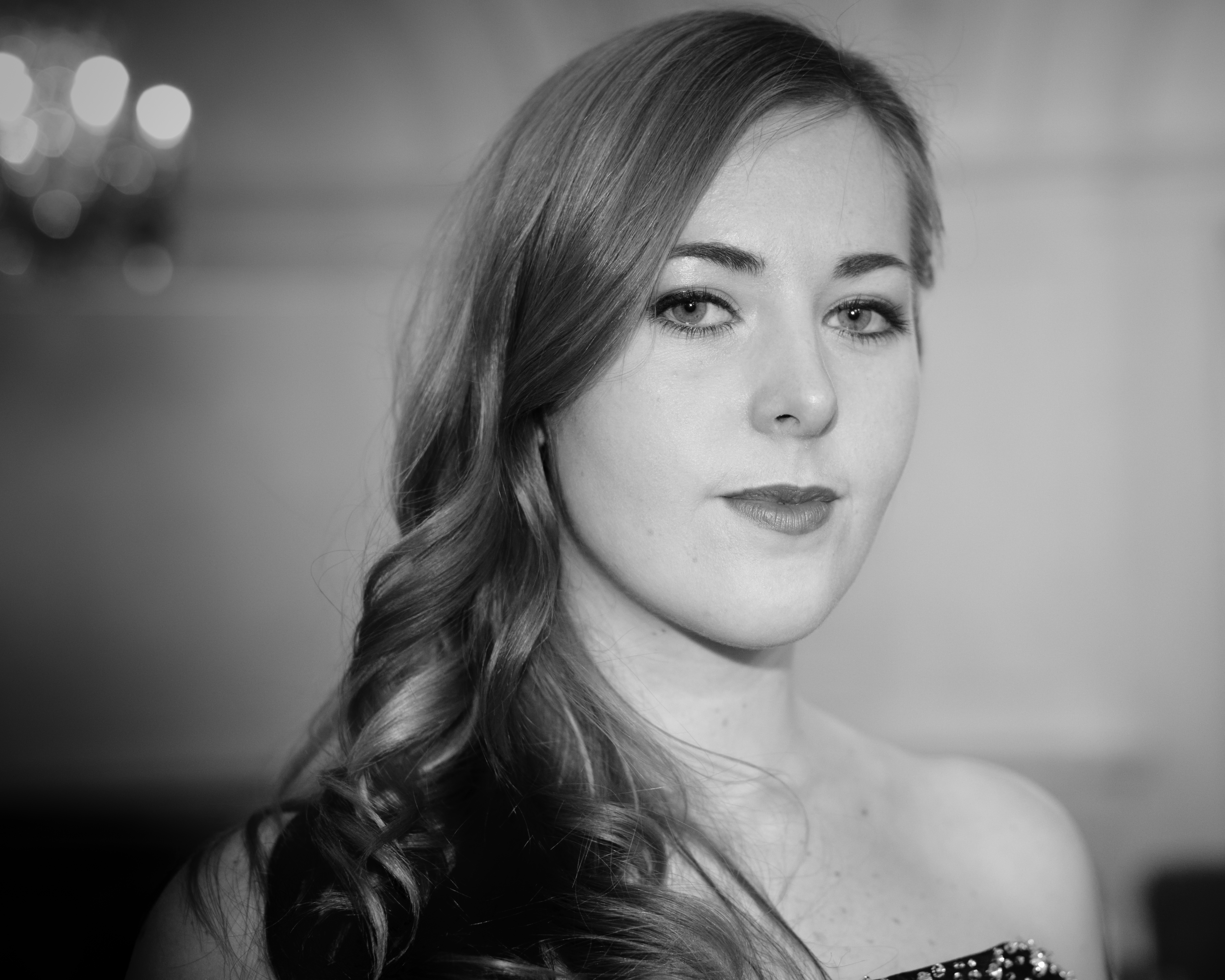
Jenny Högström, soprano
The soprano Jenny Högström was born in Luleå, Sweden. At the age of nine Jenny started learning the clarinet, and later the piano. She decided to study singing at the age of 16 for the soprano Gunilla Niska and later with Synnöve Dellquist at the Collage of Music in Piteå, Sweden, in the spring of 2012 she graduated with distinction from Schola Cantorum Basiliensis, Basel, Switzerland, with a Master of Arts in Historical Perfomance for Professor Ulrich Messthaler, and in 2014 she completed a Master in Music Pedagogy. During her studies she has undertaken Master Classes in singing and chamber music with Andreas Scholl, Margreet Honig, Alessandro de Marchi, Andrew Laurence-King, Anthony Rooley, Birgitta Svendén and Barbro Marklund among others.
As a soloist she has been invited to perform throughout Europe in prestigious festivals, such as Händelfestspiele Halle,Schwetzinger Festspiele und Berliner Tage für Alte Musik (Germany), Stockholm Early Music Festival (Sweden), Cambridge Summer Music Festival (England), Jeune Talents Paris (France) and Trigonale Festival (Austria). The main focus of her repertoire lies in the baroque, but the romantic Lied-repertoire lies very close to her heart. Jenny has worked with orchestras and soloist vocal ensembles such as La Cetra Baroque Orchestra and Vocal Ensemble, Collegium 1704, Ensemble Odyssey, Zürcher Sing-Akademie and Origen Ensemble Vocal. She had the opportunity to work with renowned conductors such as René Jacobs, Andrea Marcon, Hervé Niquet, Václav Luks and Michael Form. Together with Ensemble Odyssee, she recorded solo cantatas from the Neapolitan composer Gaetano Veneziano for Pan Classics: Christmas in Napels (2014), In Officio Defunctorum (2015).
Her performances during the season 16/17 includes tours with the Czech ensemble Collegium 1704 under the direction of Václav Luks, and with Ensemble Odyssey, conducted by Andrea Friggi. She also sang the role of Calliope in Handel’s “Il Parnasso in Festa” in Amsterdam Concertgebouw under the baton of Andrea Marcon. Jenny performs for the first time this summer at Early Music Vancouver.
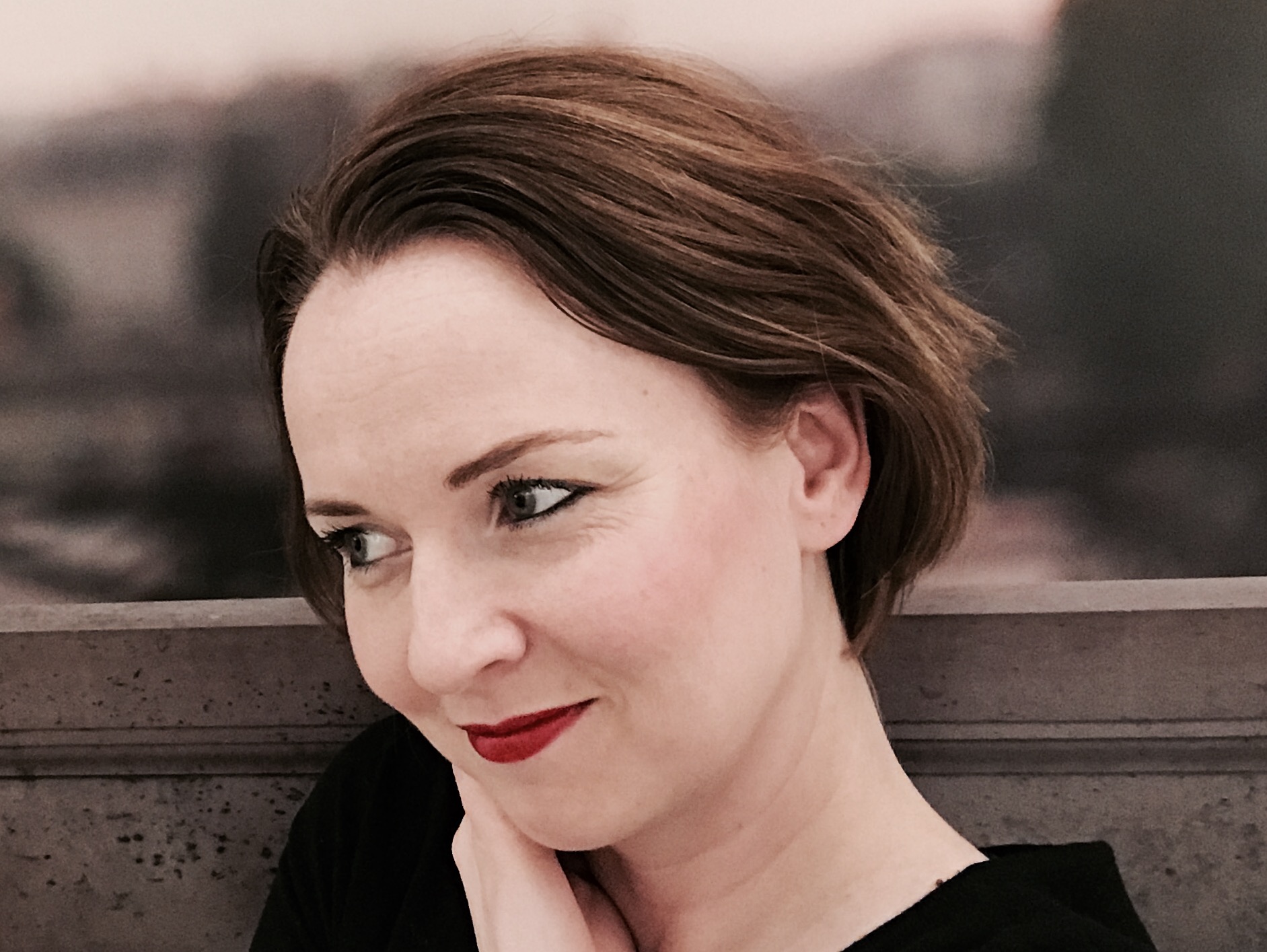
Aleksandra Lewandowska, soprano
Aleksandra began her musical road studying violin and piano. She later turned her attention to singing and eventually graduated with distinction from the Music Academy in Poznan (Poland) in the class of Wojtek Drabowicz and continued as a student of postgraduate studies at the University of Music Franz Liszt in Weimar (Germany).
She now has an established international career as a solo and ensemble singer, working regularly with leading groups and conductors such as Philippe Herreweghe (Collegium Vocale Gent), Jos van Veldhoven (Nederlands Bach Vereiniging), Stephan MacLeod (Gli Angeli Genève), John Duxbury (Cantatio), the Wroclaw Baroque Orchestra, as well as with conductors including Christophe Coin, Václav Luks, Yves Corboz, Andrew Parrott, Ivan Fischer, Giovanni Antonini, Skip Sempé, Daniel Reuss, Alexander Weimann, Christoph Spering, Peter Neumann and Michael Willens.
Aleksandra has been a guest artist at festivals including Musikfest Bremen, Bachwoche Stuttgart, Thüringer Bachwochen, Festival Oude Muziek (Utrecht), Early Music Vancouver, Festival de Saintes, Lumine Voice Festival of Lofoten, Kulturwald Festspiele Bayerischer Wald and Wratislavia Cantans.
Though mainly a specialist in earlier repertoires, Aleksandra also now performs contemporary repertoire with enthusiasm (notable collaborations include projects with the Swiss quartet, Quatuor Sine Nomine).
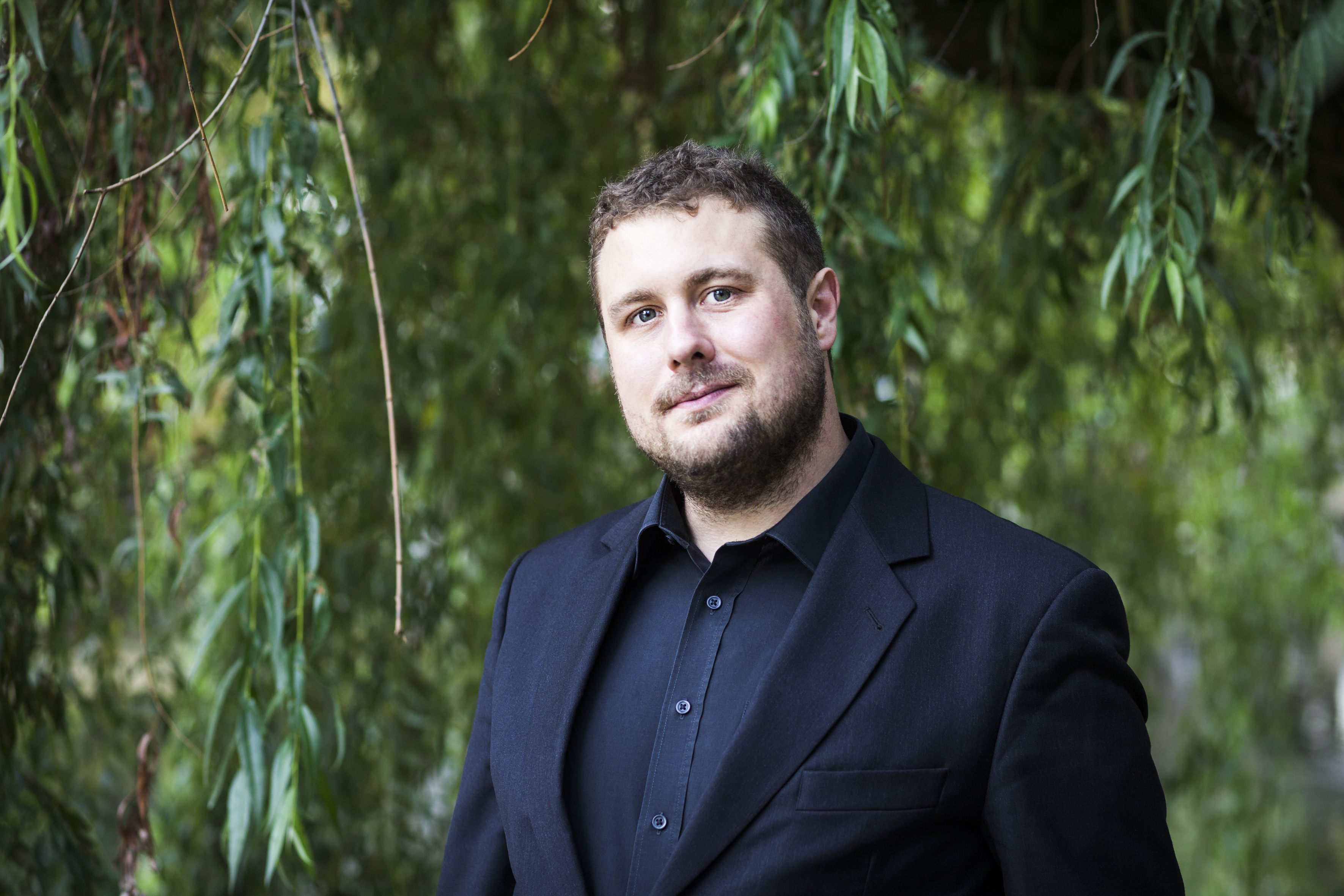
Alex Potter, counter-tenor
My mother always sang to me when I was a small child, which is why I began to sing. Her voice for me was intensely bound together with emotion, which will always remain with me. As a cathedral chorister, this emotional basis became intertwined with a fascination for text and symbolism in music, expanded upon and deepened during studies in Oxford and Basel. Remaining faithful to these origins over nearly twenty years in the profession, I continue to develop as a singer, musician and human, changed and enriched by the joy and sadness which life brings.
Nowadays you are most likely to hear me somewhere with Bach, although I also love to sing other music. When not performing, you will find me at home with my family, reading something geeky, wasting time on the internet, or cooking. Sharing and exchanging with other people, be it music, food, or conversation, is one of the great pleasures of life.
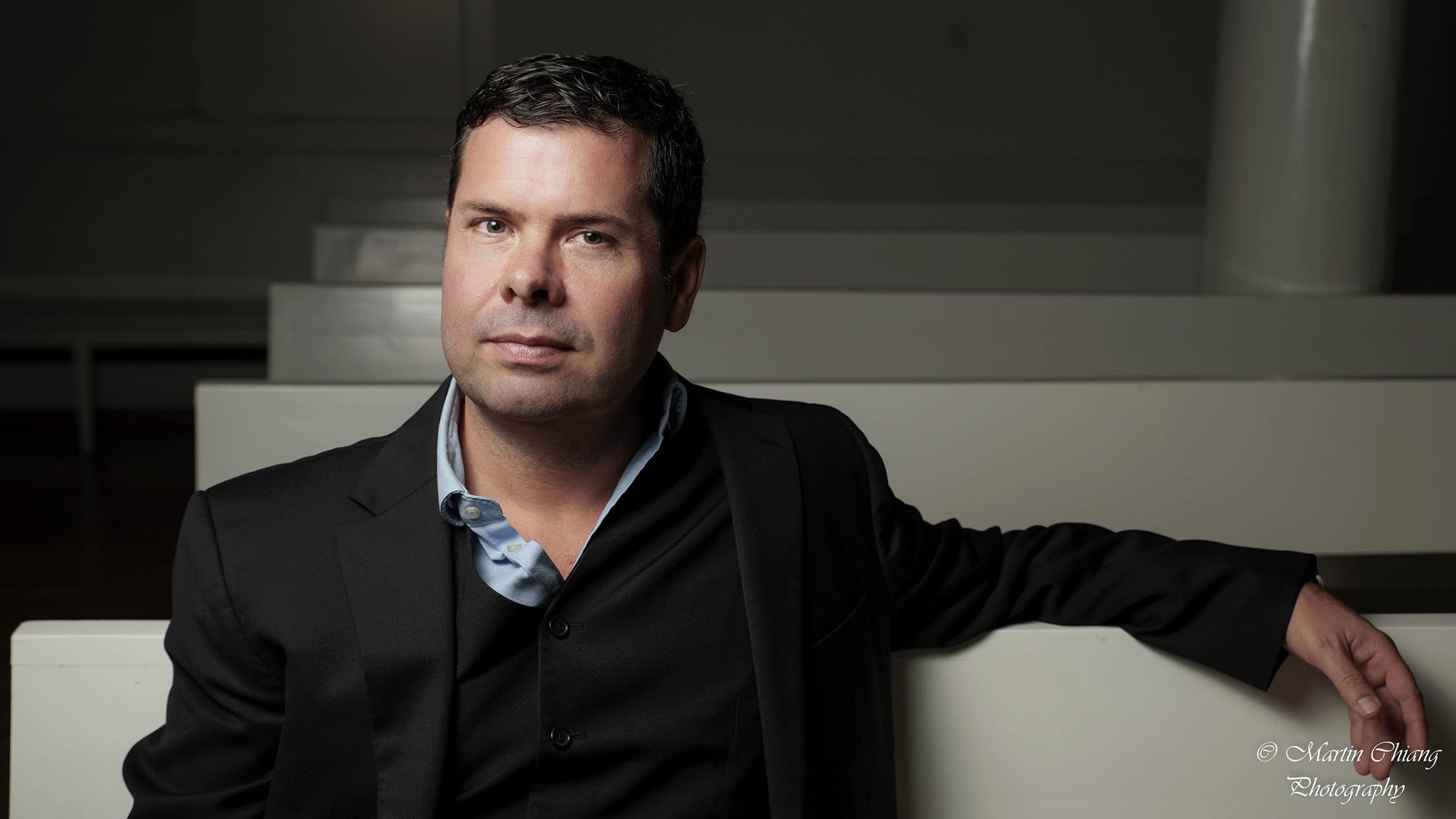
Robert Getchell, tenor
Tenor Robert Getchell began singing at the University of Massachusetts/Amherst where he studied French and Spanish literature. In France he studied French baroque music at the ‘Centre de Musique Baroque de Versailles’ and continued his studies with Margreet Honig at the Amsterdam Conservatory, specializing in early music interpretation with Howard Crook.
In Europe Robert Getchell is a frequently requested soloist, performing with many ensembles and conductors such as L’Orchestre des Champs-Elysées con. Philippe Herreweghe, Les Talens Lyriques, La Grande Ecurie et Chambre du Roy, Frans Brüggen, Amarillis, Gli Angeli Genève, Le Concert des Nations con. Jordi Savall, Akademie für Ate Muzik Berlin, and is a member of the White Raven Trio. Getchell has performed the role of La Furie in Lully’s Isis with Hugo Reyne, Astolphe in Lully’s Roland, Mercure in Lully’s Persée, The Chamberlin in Purcell’s The Fairy Queen, Eurimaco in Monteverdi’s Il ritorno d’Ulisse, and the title role in Le Claire ́s Scylla et Glaucus withChristophe Rousset. In America he regularly sings with L ́Opéra Lafayette con. Ryan Brown performing roles such as Hyppolyte in Rameau ́s Hyppolyte et Aricie, Le Chevalier in Gluck’s Armide, Polinice in Sacchini ́s Oedipe a Colone, Renaud in Lully’s Armide (the latter two recorded by Naxos). He performed the role of Gomatz and Le Podestat in Mozart Short Cuts a staged opera by Jérôme Deschamps and Macha Makeïf, con. L. Equilbey and the role of Ferrando in Mozart’s Così fan tutte at the Champs-Elysées Theater with con. Jean-Claude Malgoire. Robert Getchell has been invited to sing in various festivals in Europe such as the festivals of Versailles, Ambronay, Fribourg, Beaune and Utrecht, and he has recorded numerous CD’s with works from composers from Charpentier and Mozart to Schubert, Mendelssohn, and Poulenc. Among his projects for 2017 he will perform the role of Damon in La Double Coquette, a contemporary revision of Antoine Dauvergne’s opera comique La Coquette Trompée (1753) by Gérard Pesson, touring in France, the role of Damon in Les Indes Galantes part IV with Opéra Lafayette con. Ryan Brown, J.S. Bach’s St. John’s Passion in Victoria and Vancouver, Canada, and various concerts with J.C. Malgoire, Stephan MacLeod and François Lazarevitch.
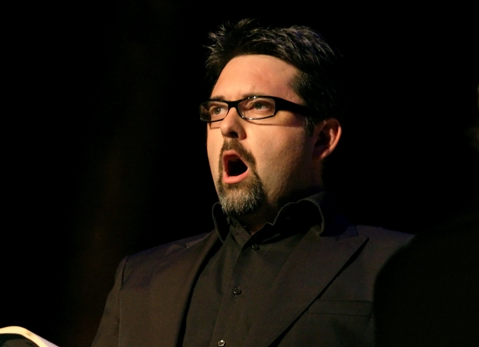
Stephan MacLeod, bass-baritone
Born in Geneva, Stephan MacLeod first played the violin and the piano and then studied singing with Kurt Moll in Cologne and with Gary Magby in Lausanne. Active all over the world as a renowned concert singer since his early twenties, his desire to conduct led him to establish his own ensemble, Gli Angeli Genève, in 2005. The ensemble has since become one of the most respected European ensembles specializing in period performance. In recent years, he has been invited to conduct a production of Cavalli’s La Calisto in Geneva, Mozart concerts at the Lausanne Opera, a production of Sondheim’s Sweeney Todd in Geneva, Bach Motets with the Netherlands Bach Society, Bach’s Matthew Passion in Switzerland, Germany, and the Netherlands, and orchestral works by Bach and Rameau with the Orchestre de la Suisse Romande.
As a soloist, Stephan is particularly active in the oratorio repertoire, particularly under Philippe Herreweghe, Gustav Leonhardt(†), Franz Brüggen(†), Masaaki Suzuki (Bach Collegium Japan), Jordi Savall, Philippe Pierlot (Ricercar Consort), Michel Corboz, Daniel Harding, Václav Luks, Sigiswald Kuijken, Konrad Junghänel (Cantus Cölln), Christophe Coin, Helmut Rilling, Frieder Bernius, Jos Van Immerseel, Jésus López Cobos, Hervé Niquet, Paul Van Nevel (Huelgas Ensemble), and with such ensembles as the Akademie für Alte Musik Berlin, Musica Antiqua Köln, the Freiburger Barockorchester, Tafelmusik, and the RIAS-Kammerchor. In the opera world, he has sung in several productions in Brussels (La Monnaie), Venice (La Fenice), Cologne, Bilbao, Edinburgh, and Geneva.
Stephan currently holds a professorship in singing at the Haute Ecole de Musique of Lausanne and is about to embark on a new concert series with Gli Angeli featuring performances of the complete Haydn Symphonies.
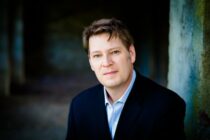
Sumner Thompson, baritone
Praised for his “elegant style” (The Boston Globe), Sumner Thompson is one of today’s most sought-after baritones. He has performed across North America and Europe as a soloist with renowned ensembles such as Concerto Palatino, Tafelmusik, Apollo’s Fire, Les Boréades de Montréal, Les Voix Baroques, the King’s Noyse, Mercury Baroque, and the symphony orchestras of Charlotte, Memphis, and Phoenix. Recent highlights include Monteverdi’s Vespers of 1610 and the new Vespers of 1640 with the Green Mountain Project; Buxtehude’s Membra Jesu Nostri with Les Voix Baroques and Houston’s Mercury Baroque; Mozart’s Requiem at St. Thomas Church in New York City; a tour of Japan with Joshua Rifkin and the Cambridge Concentus; and Britten’s War Requiem with the New England Philharmonic. He most recently appeared with EMV last year in From War to Peace: Heinrich Schurz and His Time (November) and Festive Cantatas: JS Bach Magnificat (December).


